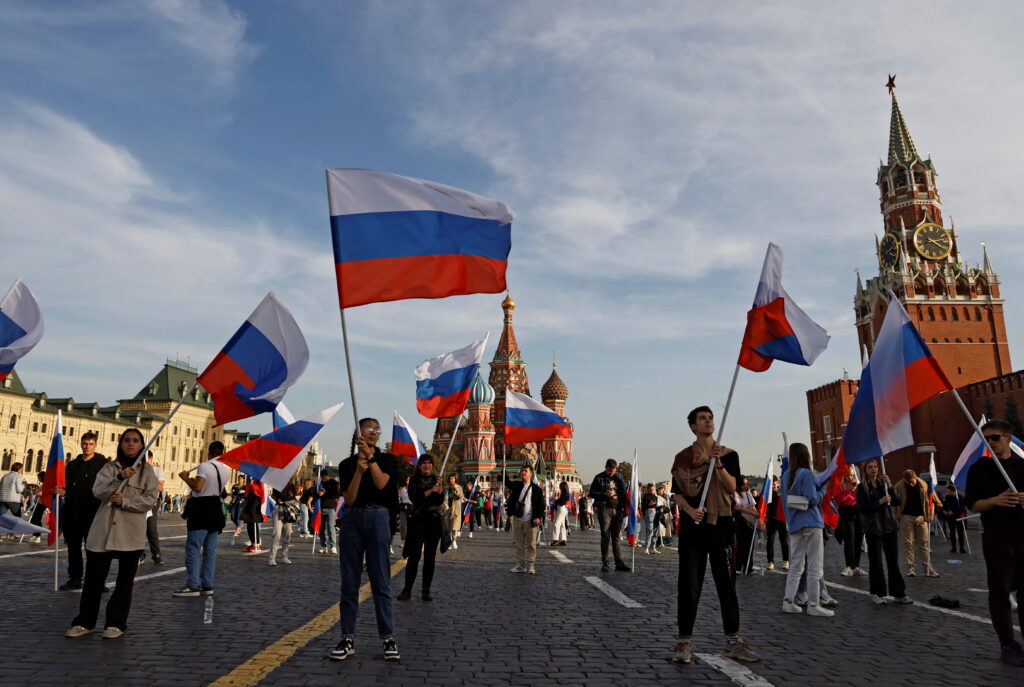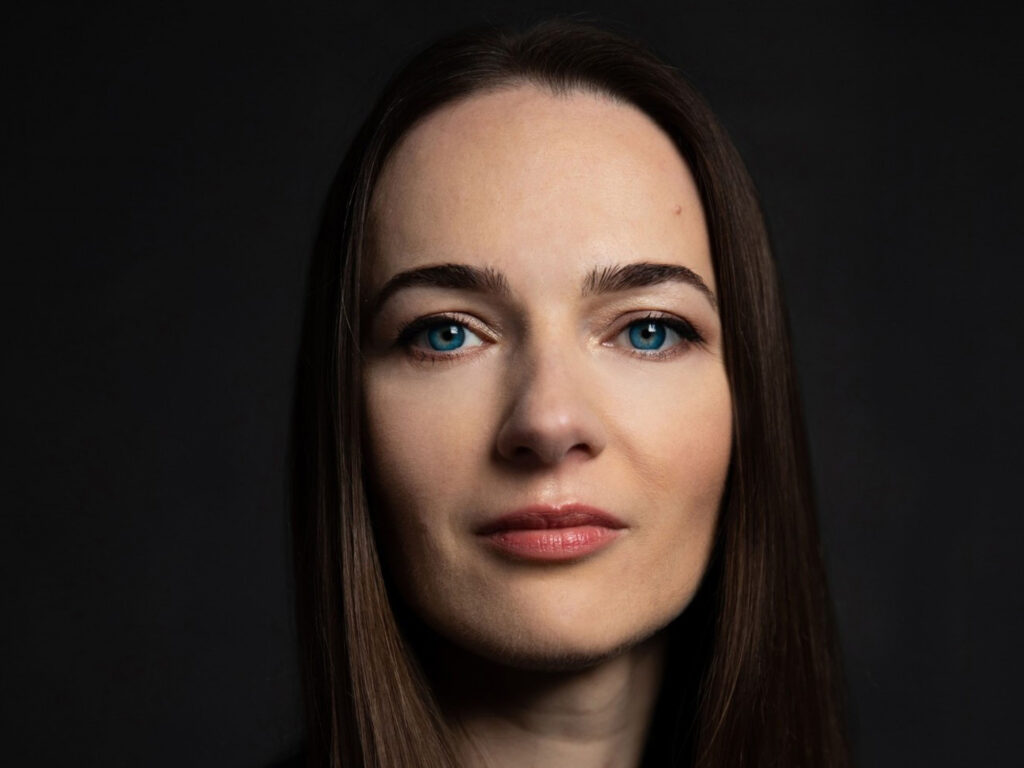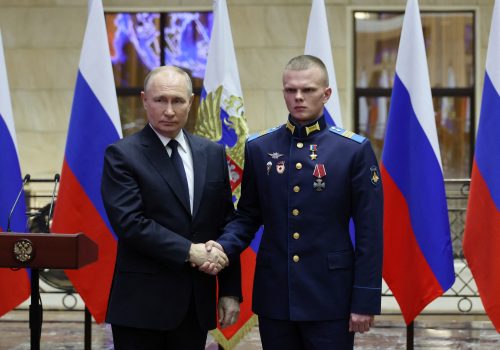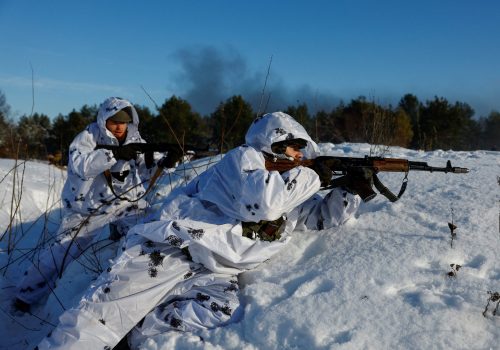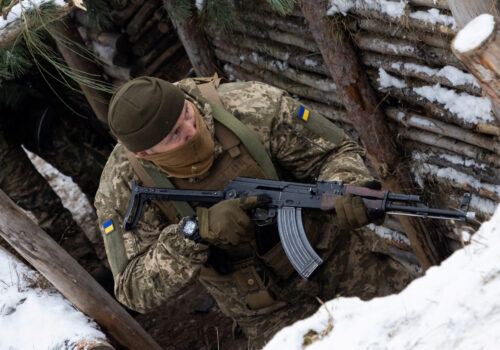Many in the West continue to argue that the majority of Russians support the invasion of Ukraine. However, nuanced analysis of Russian polling data indicates this is not the case, and suggests the Russian public is actually more concerned with how soon the war will end. This may already be forcing Vladimir Putin to adjust his public position on the invasion.
During Putin’s flagship December 2023 televised press conference, the event hosts told Putin they had received a “flurry” of questions asking when the war will end. This tallies with the findings of the Levada Center, which asked Russians prior to the press conference what they would like to ask Putin. According to another Russian pollster, Russian Field, respondents also recently prioritized the end of the war when asked to state their wishes for 2024.
Based on Russian Field polling, a solid majority of Russians oppose a potential second wave of mobilization. Meanwhile, data from both Russian Field and Levada shows a clear preference for peace talks over a continuation of the war. A Levada poll conducted in November 2023 indicated that while nominal support for the invasion of Ukraine remained high at 73 percent, the number of respondents who offered firm, unquestioned backing rather than those who “more support than oppose” the war had actually fallen from a peak of 53 percent in March 2022 to just 39 percent. This looks a lot more like conformism rather than active support for the war.
Stay updated
As the world watches the Russian invasion of Ukraine unfold, UkraineAlert delivers the best Atlantic Council expert insight and analysis on Ukraine twice a week directly to your inbox.
While polling data in an authoritarian society such as Putin’s Russia must be treated with caution, recent trends identified by Levada and Russian Field are confirmed by a source close to the Kremlin. Valery Fedorov is director of Kremlin-loyal pollster WCIOM and an official advisor to the first deputy chairman of Russia’s presidential administration. In a September 2023 interview with Russia’s RBC, Fedorov reluctantly acknowledged that the number of Russians who actively and enthusiastically support Putin’s decision to invade Ukraine is not more than 10-15 percent of the population. “The majority of Russians do not want to seize Kyiv or Odesa,” he commented. ‘If it was up to them whether to the start the “special military operation,” they probably would not have done it.”
Recent WCIOM research also acknowledges a sharp decline in both viewership and audience trust toward Russia’s state propaganda television channels. In 2023, just 40 percent of Russians cited state TV as their main source of information, down from 53 percent five years earlier. Since 2016, trust in Russian state channels as “objective” sources of information has almost halved, plunging from 46 percent to 26 percent.
Interestingly, only five percent of Russians under the age of 25 regard state TV as an objective source of information, compared to 51 percent of those aged 60 and over. This age breakdown is important if one wants to predict future trends. The patterns evident in media consumption match broader attitudes toward the war, with Levada finding that 56 percent of those aged 65 and above unconditionally back the invasion, with this figure shrinking to just 30 percent for those aged below 25.
Clearly, demography is against Putin, with younger Russians far more skeptical about the war. Indeed, a selective analysis of polling data excluding Russians over the age of 50, who were most traumatized by the Soviet and early post-Soviet experience and are therefore most easily susceptible to propaganda, would present a strikingly different picture of current attitudes toward the invasion of Ukraine.
Eurasia Center events

Based on the findings of different pollsters and non-polling criteria, a picture emerges of conscious support for the invasion of Ukraine among a significant number of Russians representing 30 percent to 40 percent of the population. This is not an unusual figure for totalitarian societies that run on fear and propaganda. Nevertheless, it is not a majority position. The available evidence indicates that the majority of Russians want the war to end, with support for the invasion fading over time and increasingly concentrated among older generations.
Similar trends can be seen in relation to military service. A range of polls show that between 50 and 60 percent of Russians reject a second wave of mobilization. This is a key reason why Putin has been reluctant to announce further mobilization over the past year or so, despite the obvious need to do so. As a result, soldiers mobilized in the final months of 2022 are stuck on the front lines of the war with little chance of any break in their service, prompting protests from family members. Polling indicates that a majority of Russians support calls from the wives of mobilized soldiers for their demobilization.
This is particularly bad news for Putin. It reveals that during almost two years of full-scale war, he has been unable to induce Russians to volunteer for combat in sufficient numbers. There are no lines at army recruitment points in the central squares of Russian cities. Instead, according to the Conflict Intelligence Team and other independent analysis, official numbers of “volunteer recruits” are wildly exaggerated. Russians may be prepared to “support” the war verbally, but they are clearly not rushing to fight themselves.
The most recent indication that Putin may be worried about waning public enthusiasm for the war against Ukraine came in his 2024 New Year address. One year earlier, Putin filmed his annual address alongside soldiers in uniform, with his speech focusing largely on the invasion of Ukraine. This year, however, he opted for a more familiar Kremlin backdrop and only mentioned the war in passing before switching to more mundane topics.
Putin understands the mood in Russia better than many Western commentators, and he appears to sense a declining public appetite for the invasion he unleashed almost two years ago. If this trend continues, it could further constrain Putin and his actions.
Vladimir Milov is Vice President for International Advocacy at the Free Russia Foundation.
Further reading
The views expressed in UkraineAlert are solely those of the authors and do not necessarily reflect the views of the Atlantic Council, its staff, or its supporters.

The Eurasia Center’s mission is to enhance transatlantic cooperation in promoting stability, democratic values and prosperity in Eurasia, from Eastern Europe and Turkey in the West to the Caucasus, Russia and Central Asia in the East.
Follow us on social media
and support our work
Image: People gather in Red Square before a rally to mark the one-year anniversary of Russia's annexation of four regions in Ukraine. September 29, 2023. (REUTERS/Stringer)
